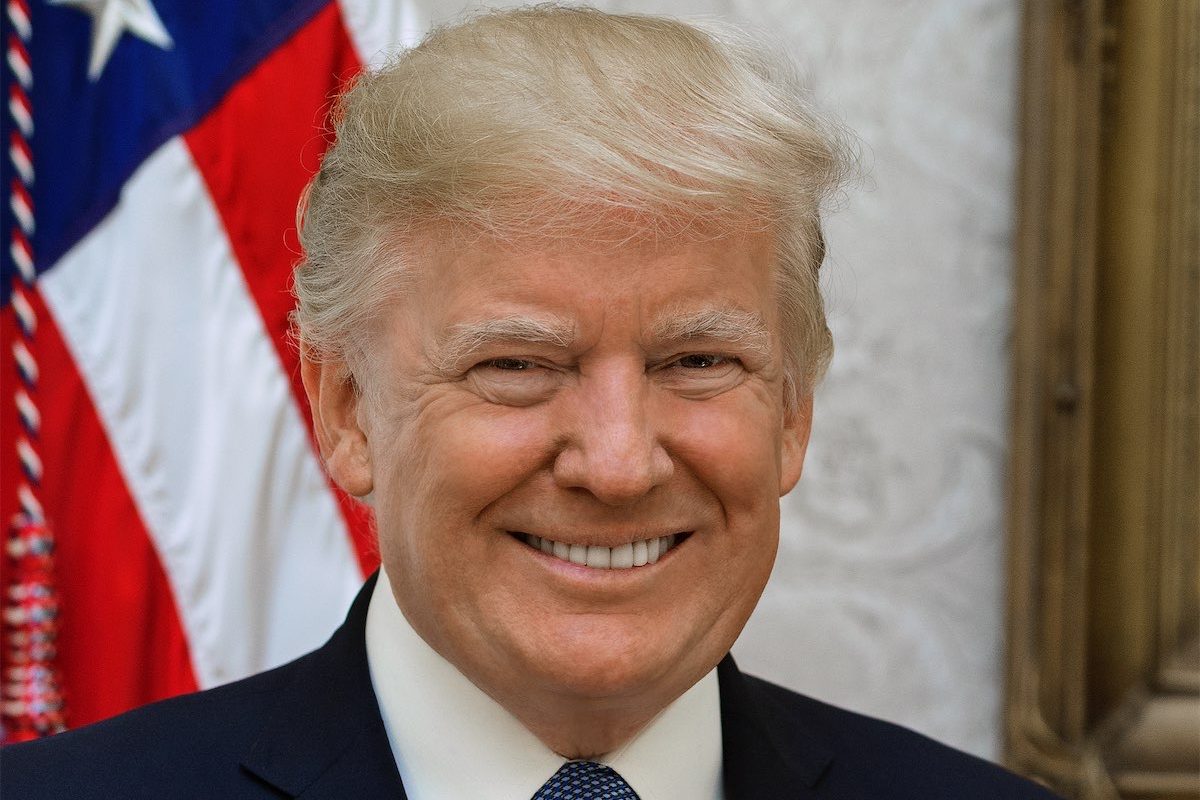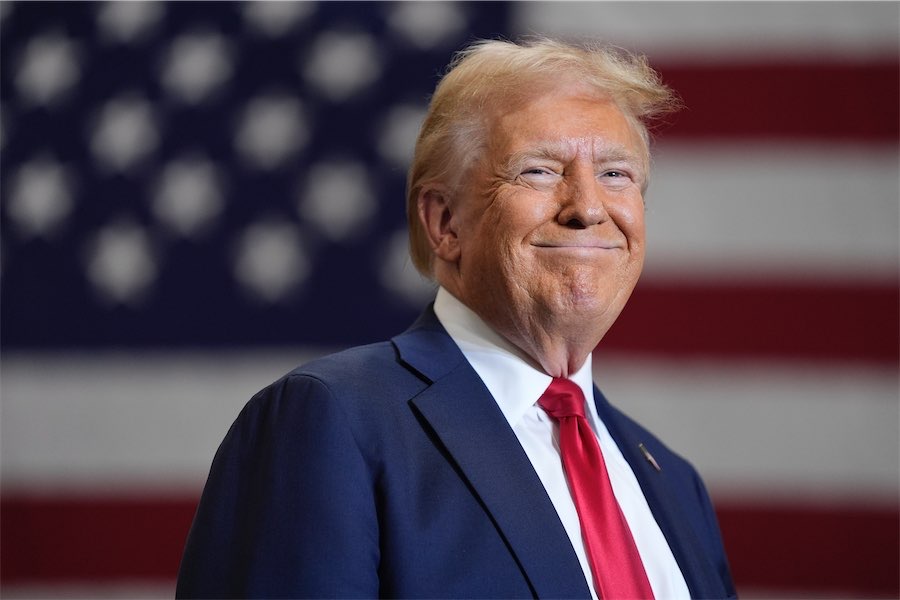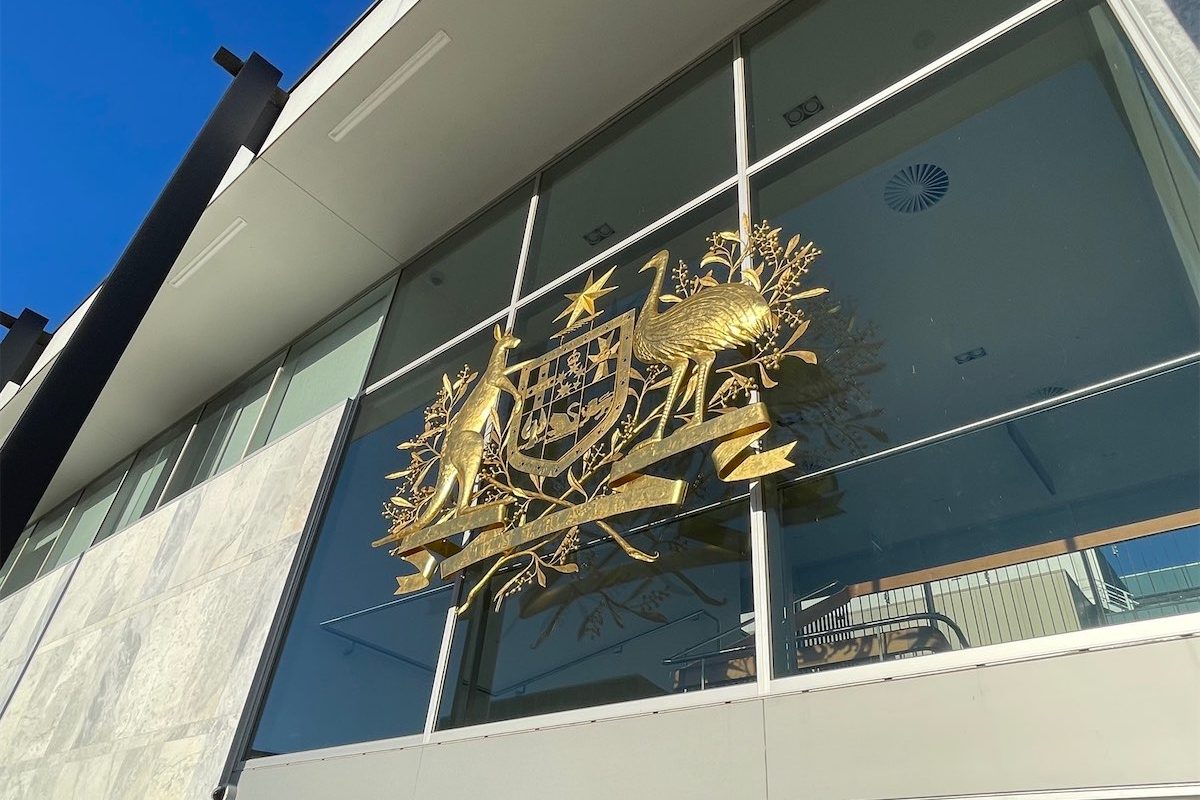
The US Supreme Court has chosen to take America back to notions that prevailed 400 years ago of the ‘divine right of kings’ and that the function of the judiciary is to thwart attempts to hold rulers accountable for their wrongs. It’s a ludicrous decision, says HUGH SELBY.
This week the US Supreme Court, by a majority of 6 to 3, destroyed the fundamental requirement of a living democracy, that no one is above the law. You can find the full judgment here.

It begins with a useful, albeit distressing summary.
This decision is the result of a corrupted approach to appointing to the highest court in the land lawyers who are appointed not for their intellectual rigour, objectivity and moral strength, but for the expectation that they will, as the opportunity arises, promote the political agendas of those who appoint them.
Throughout its history, this court at the pinnacle of a world power has had its highs and lows. Suffice to say that on the great questions of recent years, such as:
- the rights of women to choose what is to happen with their bodies,
- the rights to be free from discrimination based upon sexuality,
- the rights of everyone – including alleged terrorists – to have equal access to the rights afforded under the legal system,
- the right to be able to take one’s children to a school or a cinema or a church and be assured that they will not be murdered by an insane person equipped with a weapon that no civilian needs,
- and now the chance to re-affirm that all are equal under the law,
this court has failed.
It may bear the name “Supreme” but it is something much, much less. Even the aspiration to “equality” – a myth to every disadvantaged American – is now dead.
On the Statue of Liberty the torch is a symbol of enlightenment, lighting the way to freedom and showing the path to liberty. The torch has gone out, ironically in the same week as the French (who gave the Statue to the US) lurched towards bluster and fear-driven politics.
This article discusses the paucity of the rationale adopted by the majority and also discusses the views of the three dissenters.
A meritless argument
The majority reason that the president must be immune from prosecution in order to fearlessly carry out the functions of the office.
That is not a novel idea. We have a form of it in Australia. For example, a former Queensland chief magistrate could not be prosecuted for her forced transfer of one of the magistrates. She was prosecuted and convicted. On appeal, the High Court quashed the conviction, noting the clear words of immunity in the legislation that governed her office.
However, immunity is not the be all and end all. The issue is which approach shall be first: equality for all under the law save where the exigencies of office require special treatment of an office holder, or, that an office holder is entitled to immunity unless there can be proved that an exception applies.
The majority has chosen to take the latter path, showing a lack of judicial independence that takes us all back to notions that prevailed some 400 years ago of the “divine right of kings” and that the function of the judiciary is to thwart attempts to hold rulers accountable for their wrongs.
The majority takes the view that Trump’s active interference with the 2020 elections, and the incitement to insurrection and treason in the aftermath of that election, are insufficient to strip Trump of immunity from prosecution.
It has to be asked: What then would be sufficient alleged criminal conduct to overcome the immunity? Is there to be some mechanism that determines what is grave enough to let the criminal justice system follow its normal course?
The majority sidestep those issues. By doing so they ensure that there can be no accountability for Trump before the end-of-year presidential election. By doing so they are stripped of any right to expect respect. The future will not praise them.
Chief Justice Roberts descends to the ridiculous when he opines (at Page 13) as the justification for immunity trumping any principle of equality before the law that: “A president inclined to take one course of action based on the public interest may instead opt for another, apprehensive that criminal penalties may befall him upon his departure from office.”
A key task of the criminal law is to deter each and all of us from bad acts. There is no logical basis for asserting that our leader or leaders should be held to a lesser standard. Had his honour started out with the presumption of equality for all and then asked: Is this an appropriate instance – there being a welter of evidence as to Trump’s unlawful interference in the 2020 election – to provide immunity, then the answer: “It is not appropriate” would have followed immediately.
Instead, the people of the US are now in the ludicrous position that, “It is ultimately the government’s burden to rebut the presumption of immunity” (Page 32).
There are several references to the president’s duty to “take care that the laws be faithfully executed”, a requirement that one would think is a clear indication as to the limits of any immunity. Not so. Each such reference is like a hair found in soup. The president, if he is acting “officially”, can do what he likes.
Regarding Trump’s incitement to take over the Congress the majority are more than content to cloak that in the president’s “extraordinary power to speak to his fellow citizens and on their behalf” (Page 37). It is an ill-fitting cloak.
I am reminded of President Kennedy’s famous remark at his inauguration: “Ask not what your country can do for you – ask what you can do for your country”. The majority justices must have misheard because they ask themselves: “Ask not what your president can do for you (appoint me to the court) – ask what you can do for your president (in return)”.
The majority, aware of the views of the three dissenters, attempt to rebut those views with this throwaway, “(the dissenters)… strike a tone of chilling doom that is wholly disproportionate to what the court actually does today” (Page 45).
They go on: “Conspicuously absent (from the dissenters’ opinions) is mention of the fact that since the founding, no president has ever faced criminal charges – let alone for his conduct in office. And accordingly no court has ever been faced with the question of a president’s immunity from prosecution. All that our nation’s practice establishes on the subject is silence…” (Page 47).
It is that silence that the Supreme Court was called upon to fill in this case because it, and the people, were now faced with the first example, with clear evidence of a defeated president prepared to incite insurrection to hold on to office.
They did not confront the silence. Not only did they wash their hands, they turned away from their duty, avoided any consideration of the facts that they set out in the decision, and blew out clouds of the magic dust of “prior decisions” (decided on very different facts) to cover up their disgrace.
Justice Thomas, one of the majority, penned some additional mischief that lets the cat out of the bag. He wrote: “In this case, there has been much discussion about ensuring that a president ‘is not above the law’. But, as the court explains, the president’s immunity from prosecution for his official acts is the law” (Page 59).
That’s an argument that didn’t save the head of Charles I in 1649. But it was resurrected in 2024, some 375 years later.
That “hair in the soup” to which I refer above now becomes a split hair when another of the majority, Justice Barrett, says in a footnote (that is, it’s not a central concern for her): “Take the president’s alleged attempt to organise alternative slates of electors… In my view, that conduct is private and therefore not entitled to protection…The Constitution vests power to appoint presidential electors in the states…. And while Congress has a limited role in that process… the president has none.
“In short, a president has no legal authority – and thus no official capacity – to influence how the states appoint their electors. I see no plausible argument for barring prosecution of that alleged conduct.” (footnote 32, Page 63).
The phrase “justice is blind” refers to objectivity and a lack of bias. It has never meant a wilful refusal to examine the facts before a court, preferring to conceal those facts behind a curtain of obtuse legal reasoning so that the dead hand of the past could strangle the present.
Where the facts are novel then the law must grow just enough, but no more, to deal with that novelty. That has been the approach of our High Court in interpreting our constitution – to adapt it to changing circumstances.
Let the dissent be long remembered
Writing the dissent for three members of the court, Justice Sotomayor opens with: “Today’s decision to grant former presidents criminal immunity reshapes the institution of the presidency. It makes a mockery of the principle, foundational to our constitution and system of government, that no man is above the law.
“Relying on little more than its own misguided wisdom about the need for ‘bold and unhesitating action’ by the president… the court gives former President Trump all the immunity he asked for and more. Because our constitution does not shield a former president from answering for criminal and treasonous acts, I dissent”. (Page 68).
Her honour points out: “From the very beginning, the presumption in this nation has always been that no man is free to flout the criminal law.” (Page 75).
She might have added that that presumption is now dead. And she does: “In sum, the majority today endorses an expansive vision of presidential immunity that was never recognised by the founders, any sitting president, the executive branch, or even President Trump’s lawyers, until now. Settled understandings of the constitution are of little use to the majority in this case, and so it ignores them.” (Page 77).
She states what is obvious to anyone not intent on weaving a cover up:
“I am deeply troubled by the idea, inherent in the majority’s opinion, that our nation loses something valuable when the president is forced to operate within the confines of federal criminal law.” (Page 85).
“When presidents use the powers of their office for personal gain or as part of a criminal scheme, every person in the country has an interest in that criminal prosecution. The majority overlooks that paramount interest entirely.” (Page 87).
Being well aware that some readers of this article will assert to themselves and to others that I have gone over the top, I rest my defence on the obvious truth in her reasoning: “When (the president) uses his official powers in any way, under the majority’s reasoning, he now will be insulated from criminal prosecution. Orders the Navy’s Seal Team 6 to assassinate a political rival? Immune. Organises a coup to hold on to power? Immune. Takes a bribe in exchange for a pardon? Immune. Immune, immune, immune.
“Even if these nightmare scenarios never play out, and I pray they never do, the damage has been done. The relationship between the president and the people he serves has shifted irrevocably. In every use of official power, the president is now a king above the law”. (Page 97, see also Justice Jackson at Page 105).
Justice Jackson, also in dissent, adds some further thoughts on what the majority have wrought. She reminds us that since 1882 the Supreme Court has stood for: “No man in this country is so high that he is above the law. No officer of the law may set that law at defiance with impunity. All the officers of the government, from the highest to the lowest, are creatures of the law, and are bound to obey it.” (Page 99).
Now there is a new law, as stated by the majority: “The President can commit crimes in the course of his job even under circumstances in which no one thinks he has any excuse; the law simply does not apply to him.” (Page s 108/109).
Justice Jackson recalls the age-old truth: “To the extent that the majority’s new accountability paradigm allows presidents to evade punishment for their criminal acts while in office, the seeds of absolute power for presidents have been planted. And, without a doubt, absolute power corrupts absolutely.
“If one man can be allowed to determine for himself what is law, every man can. That means first chaos, then tyranny.” (Page 117).
She worries that, “after today’s ruling, our nation will reap what this court has sown” (Page 117).
The 60th Presidential inauguration is scheduled for January 20. It may be billed as such. In truth it will be the coronation of Emperor Donnie the First. Long may he reign, fiddling as the American Empire burns.
Postscript: This article is published on 4 July, America’s Independence Day. It is therefore a requiem.
Former barrister Hugh Selby is the CityNews legal columnist and his free podcasts on “Witness Essentials” and “Advocacy in court: preparation and performance” can be heard on the best known podcast sites.
Who can be trusted?
In a world of spin and confusion, there’s never been a more important time to support independent journalism in Canberra.
If you trust our work online and want to enforce the power of independent voices, I invite you to make a small contribution.
Every dollar of support is invested back into our journalism to help keep citynews.com.au strong and free.
Thank you,
Ian Meikle, editor









Leave a Reply